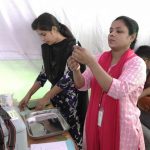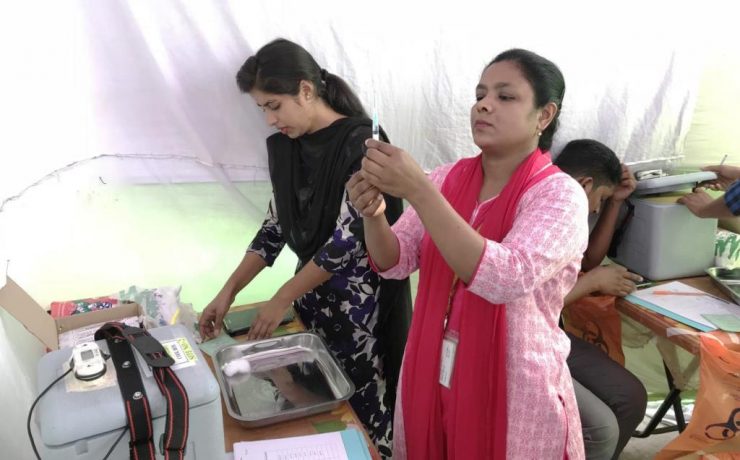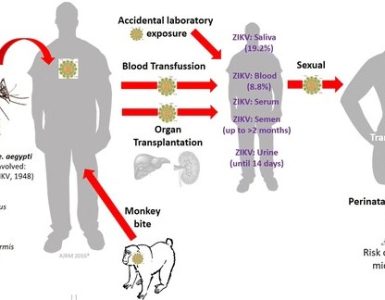
Each year there are nearly 11 million cases of typhoid, a disease that is spread through contaminated food, drink and water. Researchers at the University of Maryland School of Medicine are leading an international consortium that is studying the impact of a typhoid conjugate vaccine (TCV) in an effort to accelerate introduction of the vaccine in countries in sub-Saharan Africa and Asia where there is a high burden of typhoid.
In a supplement published by Clinical Infectious Diseases, Kathleen Neuzil, MD, MPH, Professor of Medicine and Pediatrics and Director of the Center for Vaccine Development and Global Health (CVD) at UMSOM, underscores the importance of introducing a TCV, while outlining the challenges in accelerating wide use of the vaccine in typhoid-endemic countries.
“In the past year, policy and financing milestones have paved the way for the introduction TCVs. In this supplement, collaborators from around the globe detail efforts and provide data to inform country-level decisions on vaccine introduction as a critical part of public health interventions to decrease typhoid disease,” said Dr. Neuzil, who is leading the Typhoid Vaccine Acceleration Consortium (TyVAC), an international group of researchers with a mission to accelerate the introduction of TCV in low-income countries.
The special TyVAC journal supplement, edited by Dr. Neuzil, Dr. Andrew Pollard of Oxford University and Dr. Anthony Marfin of PATH, brings together the body of research conducted by TyVAC to date, as well as additional research from other research partners. The research underscores the challenges of typhoid surveillance, the growing resistance to antibiotics and the increasing numbers of typhoid outbreaks in the most vulnerable low-resources settings.
“The growing threat of typhoid necessitates a global effort that includes preventative measures such as vaccines and improved waster, sanitation, and hygiene.,” said Dr. Neuzil.
In the supplement, TyVAC researchers detail clinical trials that are underway in Nepal, Bangladesh, Malawi, and Burkina Faso. They highlight the health economics of the disease, the growing concerns of drug resistance, and the cost-effectiveness of mass campaigns of a vaccine.
Release of the supplement comes as TyVAC researchers, in addition to several UMSOM disease experts in the CVD, will present their research in Hanoi, Vietnam, at the 11th International Conference on Typhoid and Other Salmonelloses. Dr. Neuzil is a keynote speaker at this event.
“This research led by Dr. Kathleen Neuzil demonstrates the impact our work at the University of Maryland School of Medicine has across the globe. It will help inform global vaccine policymakers in settings where diseases like typhoid are a serious threat,” said UMSOM Dean E. Albert Reece, MD, PhD, MBA, who is also the Executive Vice President for Medical Affairs, University of Maryland, and the John Z. and Akiko K. Bowers Distinguished Professor.

















